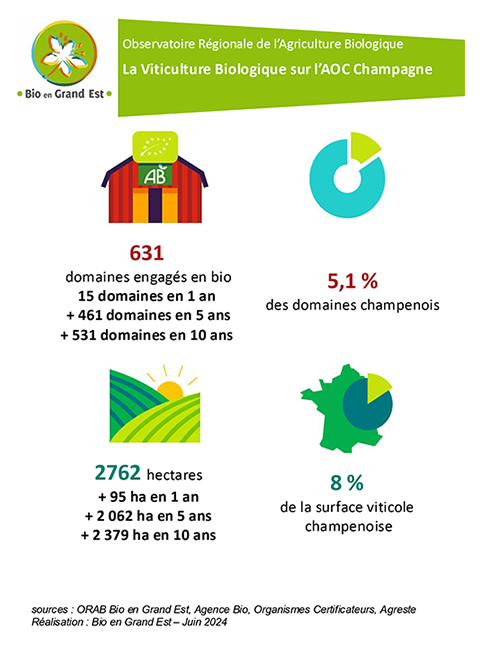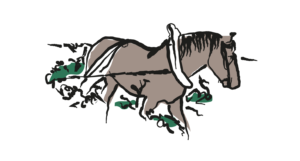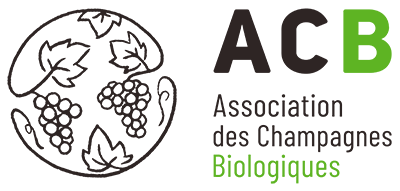ORGANIC VITICULTURE IN CHAMPAGNE
Organic viticulture has been practiced in Champagne since the 1970s, first by seven pioneering winegrowers: Jacques BEAUFORT (Ambonnay), Jean BLIARD (Hautvillers), Serge FAUST (Vandières), Roger FRANSORET (Mancy), Georges LAVAL (Cumières), Yves RUFFFIN (Avenay Val d’Or), and Pierre THOMAS (Oger).
It has been officially recognized in France since 1981 and a real enthusiasm for this method of cultivation only appears from the 2000s.
The year 2020, however marked by the health crisis and a significant decline in champagne sales, is a record year in terms of conversion to organic farming, a real turning point taken by professionals in the appellation. The interest in this environmental certification, initially driven by the winegrowers, is now confirmed by that of the cooperatives and Champagne Houses.
At the end of 2024, organic champagne production concerns 641 estates and 2772 hectares of vines, including 532 hectares in conversion. The organic vineyard now represents 8,1 % of the Champagne appellation area.
2024 figures from the Regional Observatory of Organic Agriculture
Organic viticulture has been practiced in Champagne since the 1970s, first by seven pioneering winegrowers: Jacques BEAUFORT (Ambonnay), Jean BLIARD (Hautvillers), Serge FAUST (Vandières), Roger FRANSORET (Mancy), Georges LAVAL (Cumières), Yves RUFFFIN (Avenay Val d’Or), and Pierre THOMAS (Oger).
It has been officially recognized in France since 1981 and a real enthusiasm for this method of cultivation only appears from the 2000s.
The year 2020, however marked by the health crisis and a significant decline in champagne sales, is a record year in terms of conversion to organic farming, a real turning point taken by professionals in the appellation. The interest in this environmental certification, initially driven by the winegrowers, is now confirmed by that of the cooperatives and Champagne Houses.
At the end of 2024, organic champagne production concerns 641 estates and 2772 hectares of vines, including 532 hectares in conversion. The organic vineyard now represents 8,1 % of the Champagne appellation area.
2024 figures from the Regional Observatory of Organic Agriculture

Sources : ORAB Bio en Grand EST – AGENCE BIO, Organismes Certificateurs

Sources : ORAB Bio en Grand EST – AGENCE BIO, Organismes Certificateurs


